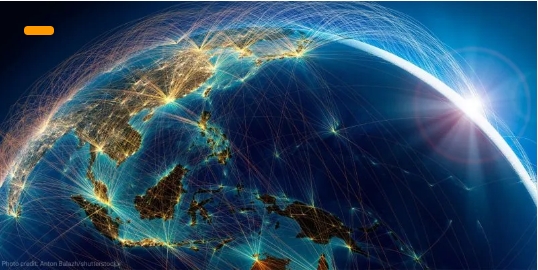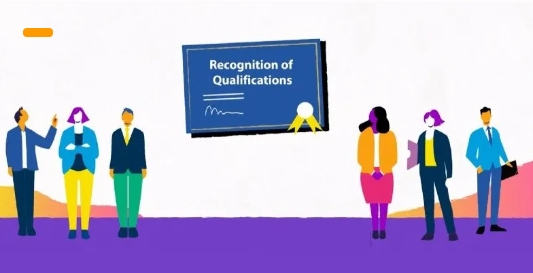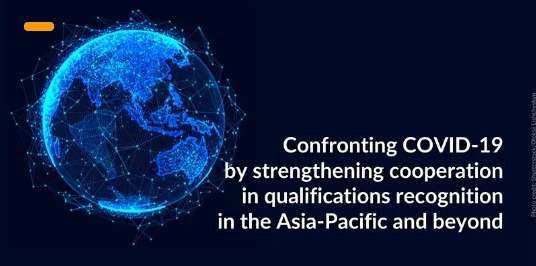A renewed vision for higher education needs to focus on quality and inclusion

Libing Wang Libing Wang is Director a.i., UNESCO Multisectoral Regional Office in Bangkok; and Chief of Section for Educational Innovation and Skills Development (EISD) Unending speculation about the future reigns today as individuals forecast events, seize opportunities and mitigate risks in a world of increasing uncertainty. However, understanding the pivotal factors driving changes is crucial […]
Building an open architecture for learning and employment in the Asia-Pacific region

By Wesley Teter Wesley Teter is Senior Consultant for the Section for Educational Innovation and Skills Development (EISD), UNESCO Multisectoral Regional Office in Bangkok. Throughout Asia and the Pacific there are growing concerns about the lack of progress in providing relevant education and training for life and work. The impacts of COVID-19 exacerbated learning poverty […]
Flexible learning pathways: A more relevant future for all

By Libing WangChief of Section for Educational Innovation and Skills Development (EISD), UNESCO Asia and Pacific Regional Bureau for Education, Bangkok, Thailand Transitioning towards flexible learning pathways that widen education opportunities for youths and adults is a crucial policy focus for revitalising higher education systems. By doing so, we can address the triple policy objectives […]
Putting digital transformation at the heart of HE systems

By Libing WangChief of Section for Educational Innovation and Skills Development (EISD), UNESCO Asia and Pacific Regional Bureau for Education, Bangkok, Thailand The advancement and widespread adoption of digital technologies have shaped the higher education landscape worldwide. We have gone through the stage of digital awareness to digital responsiveness and now find ourselves in an […]
The benefits of a well-calibrated micro-learning ecosystem

By Libing WangChief of Section for Educational Innovation and Skills Development (EISD), UNESCO Asia and Pacific Regional Bureau for Education, Bangkok, Thailand ‘The whole is greater than the sum of its parts’, according to an old saying. That’s true when it comes to a product, like a motor vehicle, with the components having no standalone […]
The future of higher education: Takeaways from the UNESCO World Higher Education Conference 2022

By Libing WangChief of Section for Educational Innovation and Skills Development (EISD), UNESCO Asia and Pacific Regional Bureau for Education, Bangkok, Thailand 2022 has been a big year for the international higher education community as we saw the once-every-decade event, the UNESCO 2022 World Higher Education Conference (a.k.a 3rd WHEC or WHEC 2022) taking place in Barcelona, […]
Takeaways from 2022’s World Higher Education Conference

The year 2022 has been a big one for the international higher education community as we saw the once-in-a-decade event, the UNESCO World Higher Education Conference 2022 (aka third WHEC or WHEC 2022), taking place in Barcelona, Spain, in May. It seems coincidental that all three WHECs have happened amid major global crises, with the previous two […]
Towards a common higher education space in Southeast Asia

We have been seeking the internationalisation of higher education for decades, if not centuries. Initially this was because of curiosity and an early interest in cultural borrowing, then because of a drive for global intellectual solidarity and international understanding, and now due to a need for global and regional economic and social integration. The previous […]
Global Convention on Higher Education: what does “recognition” mean?

15 December 2021 With the view to support the implementation of the main principles and obligations set by the Global Convention on the Recognition of Qualifications concerning Higher Education (2019), UNESCO launched A Practical Guide – Implementing the Global Convention, which spells out 8 steps to guide the evaluation and recognition of higher education qualifications. See […]
Statement on COVID-19 by Parties to the Tokyo Convention

The COVID-19 pandemic has caused unprecedented, wide-ranging and significant disruption to education, training and international mobility. Addressing these concerns, the State Parties to the Tokyo Convention on recognition confirmed that the 2020s must not become a decade of lost opportunity for cross-border higher education. People around the world have rapidly moved to remote forms of learning, teaching […]

